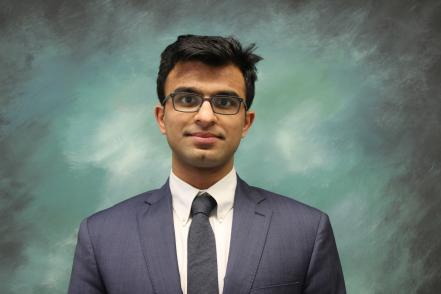Today’s Headlines and Commentary
In response to the Indian government’s decision to revoke Kashmir’s special status under the Indian constitution, protests broke out across the disputed state, the New York Times reports. More than 500 people were arrested and taken to makeshift detention centers, according to human rights activists. Police officials say that the protestors hurled rocks, injuring several officers including a top official.
Published by The Lawfare Institute
in Cooperation With

In response to the Indian government’s decision to revoke Kashmir’s special status under the Indian constitution, protests broke out across the disputed state, the New York Times reports. More than 500 people were arrested and taken to makeshift detention centers, according to human rights activists. Police officials say that the protestors hurled rocks, injuring several officers including a top official.
Turkish Foreign Minister Mevlut Cavusoglu said that the country would not allow plans for a safe zone to stall over negotiations with the U.S., Reuters writes. On Wednesday, the two countries announced plans for a joint headquarters to manage the proposed buffer zone in northeast Syria between the Turkish border and a Kurdish militia which Turkey considers a terrorist group, but neither specified details such as the size of the zone and the command structure of the proposed joint-patrol force.
On Thursday, Former President of Kyrgyzstan Almazbek Atambayev was arrested by police on corruption charges after overwhelming the resistance of his supporters, the Associated Press reports. A previous attempt to detain Atambayev on Wednesday, during which police clashed with his supporters and Atambayev himself fired on police, though he “tried not to hit people.” The confrontations left an officer dead and 79 people injured. Atambayev dismissed the corruption charges as absurd and accused his successor of fabricating them.
A report from the U.N. Intergovernmental Panel on Climate Change warned that humans must make dramatic changes to the way they grow food, raise livestock and manage forests to avoid the worst impacts of climate change. The report states that land use for agriculture and forestry also contribute significantly to climate change, the effects of which the report says are already threatening food and water supplies, according to the Washington Post.
ICYMI: Yesterday on Lawfare
Joshua A. Geltzer, Karen Kornbluh and Nicholas Rasmussen argued that technology companies must work to thwart violent white supremacist activity.
Shane Reeves argued that the law of armed conflict must evolve or risk becoming detached from modern military operations.
Geoffrey S. Corn and Rachel E. VanLandingham caution that, while greater awareness of civilian casualties is generally a normative good, such accounting must be accompanied by strong contextual checks and balances.
Vishnu Kannan shared the House Judiciary Committee’s civil complaint filed in the U.S. District Court for the District of Columbia to enforce the committee’s subpoena against former White House counsel Don McGahn.
Robert Chesney and Steve Vladeck shared the most recent episode of the National Security Law Podcast, in which they discuss domestic terrorism as a legal and political category, a pending cert petition before the Supreme Court in DHS v. Thuraissigiam and more.
Jen Patja Howell shared the most recent edition of Rational Security in which Tamara Coffman Wittes, Shane Harris, Susan Hennessey and Benjamin Wittes discuss the renewed discussion and debate over domestic terrorism, the U.S-China trade war and the U.S.’s pivotal moment in Syria.
Email the Roundup Team noteworthy law and security-related articles to include, and follow us on Twitter and Facebook for additional commentary on these issues. Sign up to receive Lawfare in your inbox. Visit our Events Calendar to learn about upcoming national security events, and check out relevant job openings on our Job Board.


.jpg?sfvrsn=912f39e2_5)

